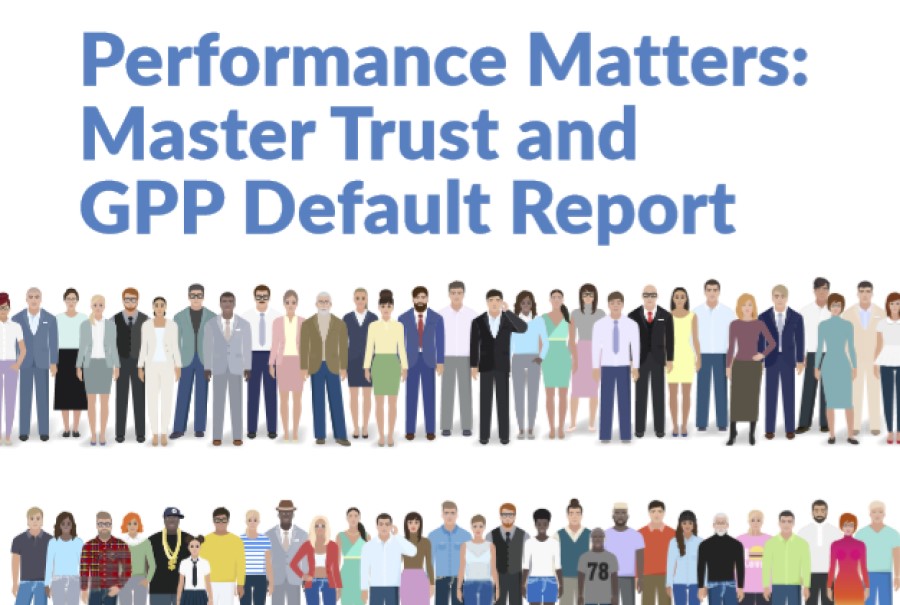Debi O’Donovan highlights research on the impact master trust choice has on savings outcomes

Download the Master Trust and GPP Default Report 2019
This big shift towards master-trusts by employers, is down to organisations wanting to guarantee quality governance, security and investment expertise without the costs of delivering these themselves. In addition, the number of employers offering a single-trust scheme for their own staff has shrunk dramatically over the past decade.
It is because of this huge shift that the Reward & Employee Benefits Association (REBA) has been delighted to partner with our friends at Corporate Adviser to offer the Master Trust and GPP Default Report 2019. Corporate Adviser is the leading publication for workplace financial services intermediaries and the employee benefits sector.
We believe that reward and benefits managers responsible for workplace pension schemes should be kept informed on how the rapidly evolving master trust area is changing. Most importantly, those responsible for selecting a pension provider need to be fully aware of how the choice of master trust could impact on savings outcomes for their employees.
This report analyses the decisions made by the 27 leading master trusts, representing more than nine tenths of the market. They invest on behalf of almost nine million employees, and well in excess of four million ‘deferred’ members (that is, individuals no longer contributing to a pension). It also looks at the performance of contract-based workplace pension schemes such as group personal pensions (GPPs), which hold the assets of well in excess of two million employees. The combined assets of the master trust and contract-based default funds in this report totalled more than £59 billion as at 31 March 2019.
In order to interpret the relative performance of individual master trust and GPP default funds the Corporate Adviser team has created a benchmark called the Corporate Adviser Pensions Average (CAPA). The CAPA is the average (mean) return delivered by the 32 known default funds, which cover the great majority of investment strategies that determine the pension pots of employees in defined contribution pension plans.
The CAPA aims to give an indication of how defaults have performed against their peer group; that is virtually all the other defaults on the market. As ever, when it comes to investments, a single set of numbers is never the full picture, so context is vital and caveats are essential. If markets had performed badly than they have done over recent years then many of those defaults towards the bottom of the performance tables in this report would be at the top, having fallen less than riskier, more aggressive funds. However, the data set does highlight outliers that trustees, employers and consultants may see as causes of concern.
On the topic of concern, The Pension Regulator (TPR) has kept a careful eye on this fast-growing market (where trust-based assets almost tripled over seven years from just over £20 billion in 2011 to £60 billion at the end of 2018) to ensure all players deliver. The regulator has introduced a new authorisation regime and, at the time of going to press, 38 master-trusts had submitted under the new rules, down from the 80 in existence six months ago.
We can expect a delay of several months to find out which master trusts will be given the green light by TPR, which could cause a pause in switching activity by employers. Industry experts also forecast a continued consolidation in the master trust sector, with some predicting that we’ll eventually get down to 20 to 25 players.
It is worth noting the different target markets of master trust providers, from those wishing to attract volume business with millions of employee members through to those targeting single big employers with well-paid employees. As ever, which provider an employer chooses to go with needs to align with their strategy for their pension scheme.
Of crucial importance is the investment returns that are delivered to employee members over their decades of saving. The default investment strategies analysed in this report will influence the retirement outcomes of more than 13 million savers. Even a 1% improvement in investment outperformance can lead to a massively increased pot over a 30- or 40-year saving period. The differential performance figures revealed in this report, demonstrate that we could see a huge disparity in the final retirement pots of two individuals making identical contributions.
The big lesson for employers, based on the data in this report, is that which pension provider it appointed has a significant impact on the ultimate retirement pot of each employee.
So there is a strong onus on those making pension provider appointments to keep informed using independent sources with access to a wide range of data from across the pension provider market, such as is the case with the Corporate Adviser team.
Download the Master Trust and GPP Default Report 2019
The author is Debi O’Donovan, co-founder and director at Reward & Employee Benefits Association (REBA).






